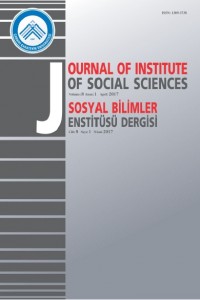Abstract
Many former-colonised authors “write back to the centre” following decolonisation by challenging and remodelling the texts about their nations. The Nigeria-born British author Buchi Emecheta is one of them. Emecheta’s Second Class Citizen revolves around Adah. The protagonist starts her ardous life by struggling against the patriarchal Igbo culture she is born into. Then, she encounters the racial discrimination in London where she accompanies with her husband, Francis, who represents patriarchy; thus, her ordeal is doubled as being both black and a woman in London. In the novel, Emecheta draws a portrayal of her own life by means of Adah who achieves standing upon her feet as a black mother in the colonial society at last. She provides a way out for black women by means of the protagonist who manages to elude from the second-class position attributed to them by black men and the colonial society. Moreover, the author fills in the blanks left by colonialist authors. She also informs about the Nigerian people who had a culture with their religion, language and life style destroyed by colonisers. Thus, the purpose of the study is to indicate how Emecheta abrogates and reapproriates in her autobiographical novel Second Class Citizen.
References
- Boss, Joyce. (1988). “Women and Empowerment: ‘An Interview with Buchi Emecheta’”, A Journal of African Studies, 16(2), pp: 93-100.
- Emecheta, Buchi. (1989). Second Class Citizen. 1974. Great Britain: Hodder and Stoughton.
- Hooks, Bell. (1984). Feminist Theory: From Margin to Center. Boston: South End Press.
- “How Do You Practice Intersectionalism? An Interview with Bell Hooks”, Common Struggle, 15 March 2012. 13 Apr. 2015, (http://www.commonstruggle.org, 13 Apr. 2015).
- Ola, Virginia U. (1987). “Art and Propaganda in Buchi Emecheta’s Second Class Citizen”, UTAFITI, 9(1), 135-147.
Abstract
References
- Boss, Joyce. (1988). “Women and Empowerment: ‘An Interview with Buchi Emecheta’”, A Journal of African Studies, 16(2), pp: 93-100.
- Emecheta, Buchi. (1989). Second Class Citizen. 1974. Great Britain: Hodder and Stoughton.
- Hooks, Bell. (1984). Feminist Theory: From Margin to Center. Boston: South End Press.
- “How Do You Practice Intersectionalism? An Interview with Bell Hooks”, Common Struggle, 15 March 2012. 13 Apr. 2015, (http://www.commonstruggle.org, 13 Apr. 2015).
- Ola, Virginia U. (1987). “Art and Propaganda in Buchi Emecheta’s Second Class Citizen”, UTAFITI, 9(1), 135-147.
Details
| Primary Language | English |
|---|---|
| Journal Section | Articles |
| Authors | |
| Publication Date | April 30, 2017 |
| Submission Date | December 19, 2016 |
| Published in Issue | Year 2017 Volume: 8 Issue: 1 |

Bu eser Creative Commons Atıf 4.0 Uluslararası Lisansı ile lisanslanmıştır.


